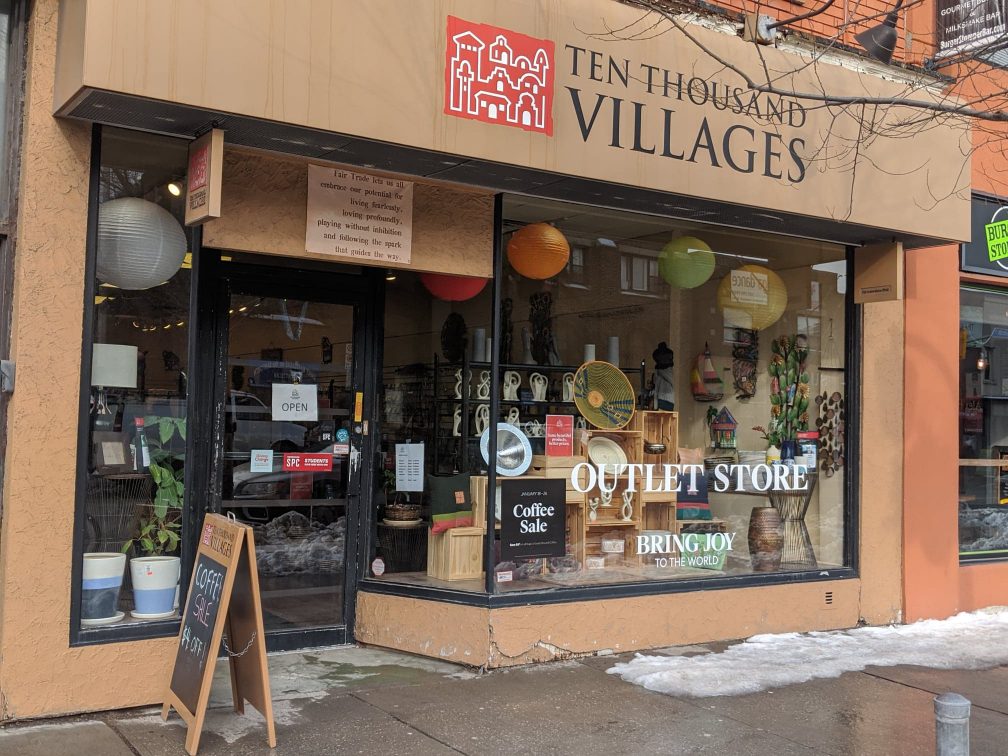Fair trade staple Ten Thousand Villages Canada will shut down its corporate operations this spring.
The organization said on Tuesday that its 10 remaining company stores, online shopping portal, wholesale operations, head office and distribution centre will all close, likely at the end of May.
You may unsubscribe from any of our newsletters at any time.
Roughly 100 people will also lose their jobs as a result of the closure, said Rick Cober Bauman, the executive director of Mennonite Central Committee Canada, which runs Ten Thousand Villages Canada.
Closure was a difficult decision, he said, but the end result of a lot of hard work to turn the non-profit social enterprise around.
“I would say this is about a 12-year process of watching the business get less and less profitable and then unprofitable for a number of those last years,” he said.
A number of the stores, which sell a variety of fair-trade jewellery, home decor, stationery, coffee and chocolate, have already closed in the past couple of years.
Bauman said lagging sales, along with increased competition from other players in fair trade and the high cash-flow demands involved in fairly compensating suppliers prompted the move.
MCC Canada is also primarily a relief development and peace organization that operates in many of the same countries that Ten Thousands Villages Canada has suppliers, he said.
“We couldn’t continue a less-than-break-even retail business without putting that ongoing work at risk,” he said.
But loyal customers aren’t completely out of luck.
Eight independently owned, Ten Thousand Villages-branded stores — in Abbotsford, B.C., Edmonton, Calgary, Steinbach and Brandon, Man., Port Colborne and Cobourg, Ont. and Pointe-Claire, Que. — will stay open.
Bauman also said that the U.S. version of the business, run by the broader MCC and not affected by the closure, will fulfill online orders placed in Canada once the Canadian stores close.
The MCC became one of the pioneers of the fair-trade movement in 1946, when MCC worker Edna Ruth Byler began selling embroidery made by Puerto Rican women in poverty to her neighbours and friends in the U.S.
The organization now says it has worked with more than 20,000 individual artisans around the world, emphasizing long-term partnerships, mutually agreed on prices for items and good working conditions.
Bauman said the impact on artisans makes the decision particularly hard for MCC Canada senior staff, even though the organization had long worked with them to find other buyers for their products.
“That is probably the saddest and the most distressing part of the announcement and the decision,” he said.
After hearing the news Tuesday, hundreds of customers and former volunteers took to social media to express their sadness that many go-to spots for ethically made, often unique items would be closing.
“That’s exactly what we’re hearing,” said Bauman, “and we just wish there would have been a few thousand more of those customers.”














